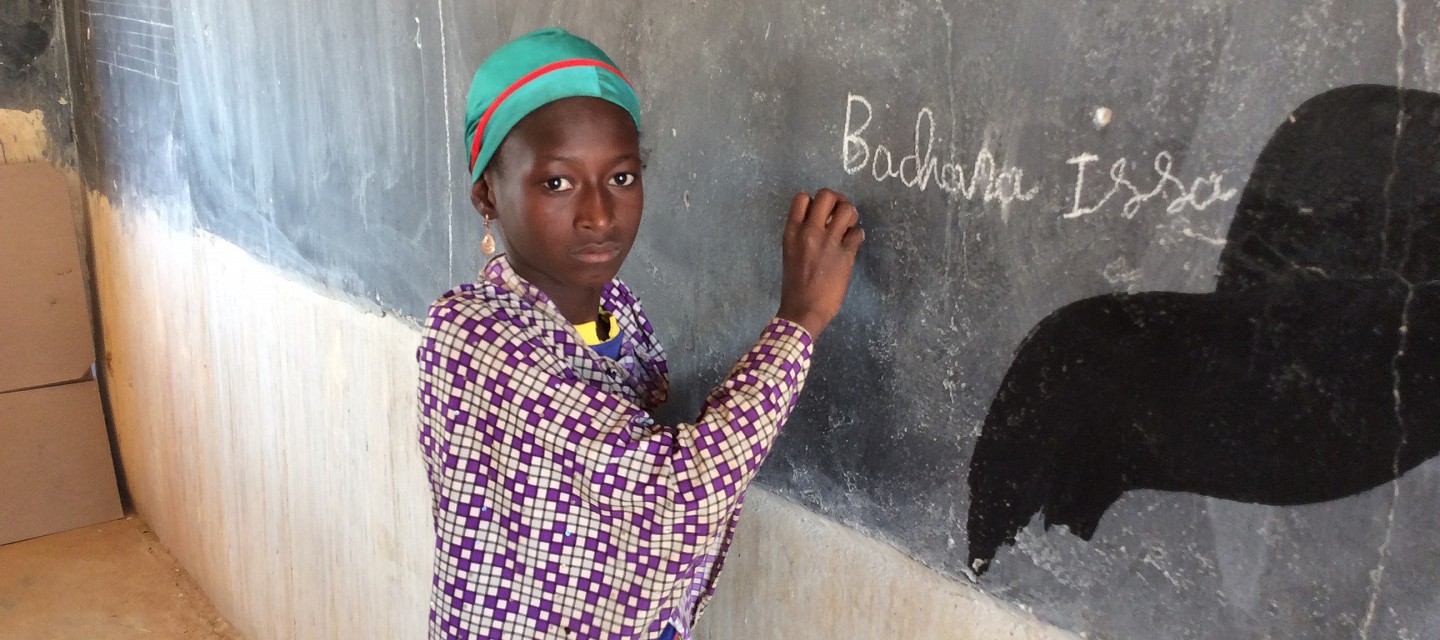Niger case study - Bachara
How our education programmes are improving children’s lives in Niger
October in Niger means back to school — for some, at least. Niger has one of the largest populations of young people in the world, with more than half the country aged 14 and under (in 2017). That is 10.74 million Nigeriens who should be in pre-primary (ages 4-6), primary (ages 7-12), or secondary school (ages 13-19).
In fact, Niger consistently ranks bottom of the UN Development Programme’s Education Index, which measures the country’s average number of years of schooling and the expected number. Its most recent score, in 2013, was 0.19. By comparison, the UK has a score of 0.86.
For children who manage to attend primary school, the vast majority still cannot read or write. Concern’s 2014 early grade reading assessments showed that none of the 790 children tested was literate.
In Niger, several barriers to education exist to keep nearly 2.6 million children and adolescents out of the classroom. Food insecurity and extreme poverty have direct effects on school attendance and are one of the greatest obstacles to education, with many students missing school, especially during hungry seasons.
Concern has worked in Niger since 2003. Our work focuses on tackling the causes of extreme poverty through health, nutrition, livelihoods and education support. Our education programmes focus on improving quality of education, as well as access to education, particularly for girls. We also focus on ensuring those in education remain there.

Nine-year–old Bachara, a third grade student in the village of Edel in Niger’s Tahoua region, is the only child in her family still in school. Her four elder sisters and two elder brothers were forced to drop out of primary school after failing final year exams.
Bachara attends one of 40 Concern-supported schools in Tahoua, a largely rural, arid region, where the poorest families exist in a state of permanent chronic poverty. The school, which has been supported by Concern since 2013, has a total of 280 students, 110 of whom are girls. In Bachara’s classroom, there are 65 students. Bachara is one of 28 girls in the class.
While the language of education in Niger is French, most Nigeriens grow up speaking Hausa as their mother tongue, leaving many students, like Bachara’s siblings, behind and unable to progress.
To help address low literacy rates and improve the quality of education, Concern has implemented a mother-tongue programme to tackle the language barriers in the classroom. The model uses a transitional design that begins exclusively in Hausa and gradually starts to introduce French so that by fourth grade, students are able to speak and understand French.
When Concern began implementing the programme, almost all of the 787 students were incapable of reading a single word in either French or Hausa. At the end, while the group of students dropped to 547 over the course of four years, literacy rates improved dramatically - only 25-34 per cent of students were still unable to read a word of French or Hausa.
Through the use of bilingual teaching methods and positive discipline, early grade reading assessments have shown strong improvements in the reading capacity of girls and boys at several grade levels, as well as an increase in school attendance from 65 per cent in 2017 to 95 per cent in 2018.
The programme supports school management committees and the implementation of a Code of Conduct in schools to improve safety and well-being. Teachers receive training and regular coaching using innovative video-coaching techniques and are supported to apply positive discipline techniques in their classrooms.
A proud Bachara told us how the programme has helped her:“Thanks to Concern’s support, I can read and write, as teaching through Hausa was introduced in grade one”. She now dreams of becoming a teacher one day. If that happens, the next generation of Nigerien students should be in good hands.
Read the latest newsletter here.
Case studies
Our promise
We will donate £2 from the sale of every TEFL course in 2021/2022 to directly benefit Concern’s education programmes.

